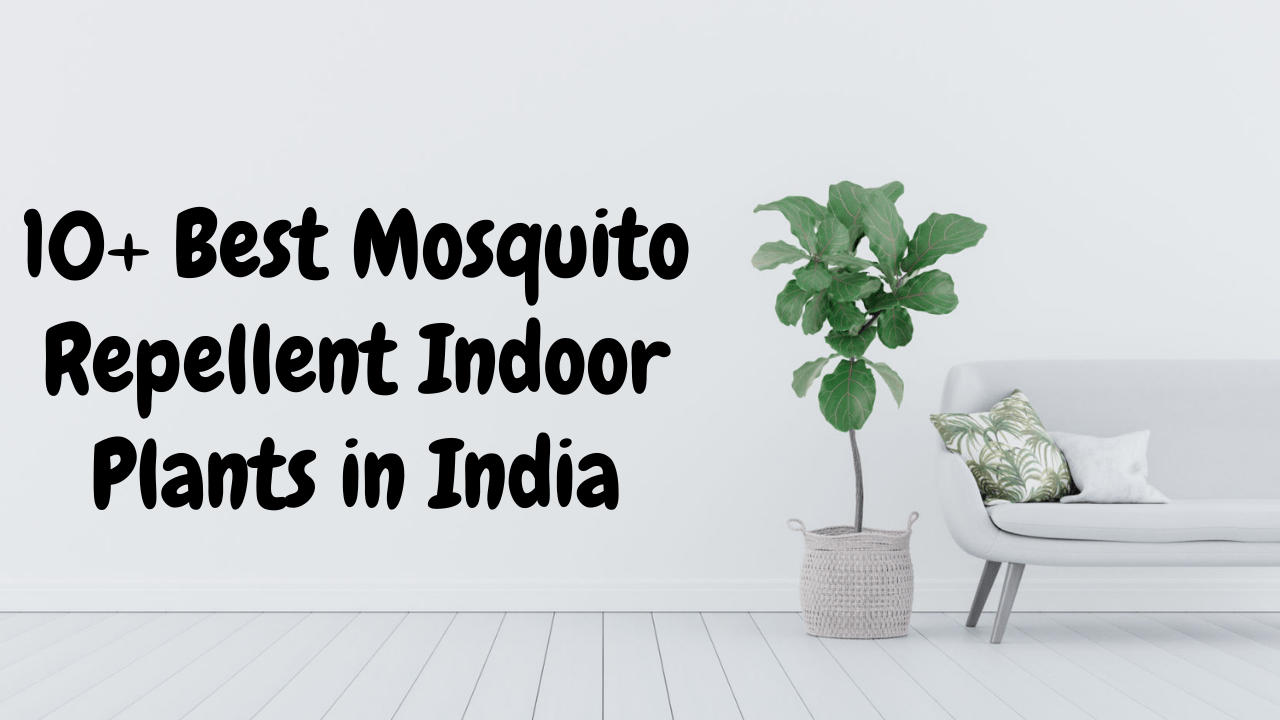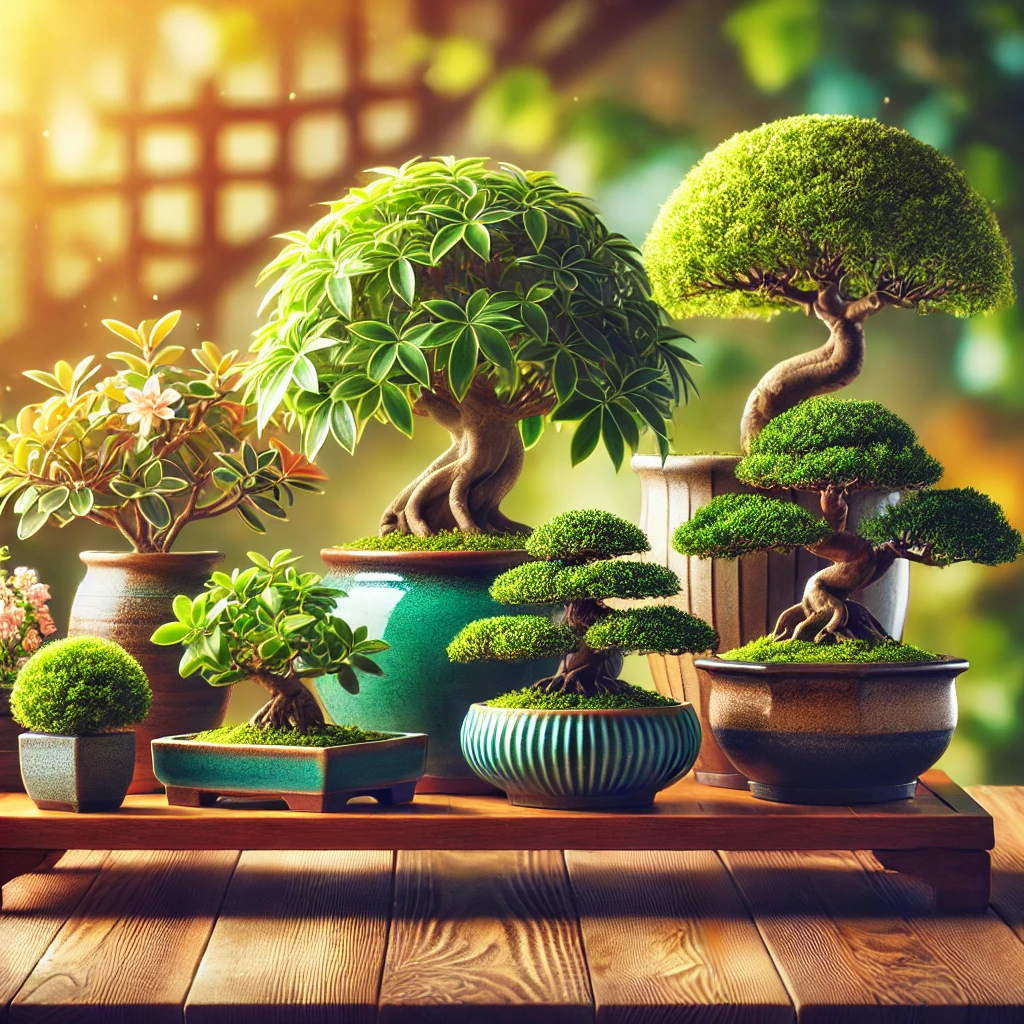Mosquitoes can be a nuisance while you are outside during the evening, but they can be even worse once they get indoors. Instead of grabbing a can of chemical bug spray, try growing a few well-chosen indoor plants to keep mosquitoes away.
You heard that right! Mosquitoes are repelled by several indoor plants, and many of them are easy to grow even for the plant novice. Check out these amazing mosquito repellent indoor plants that you should add to your home:
Best Mosquito Repellent Indoor Plants
1. Lemon Balm
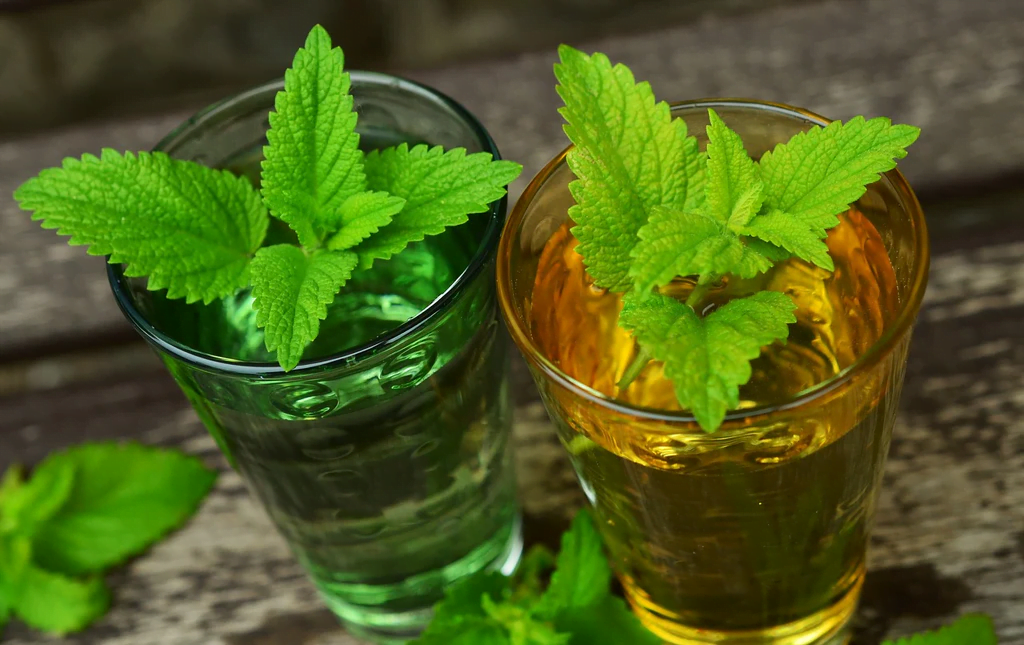
Botanical name: Melissa officinalis
Light: Partial Shade
Water: Deeply soak the roots.
Soil: Fertile, well-drained soil.
Lemon Balm also known as Balm Mint, is a great pick for repelling mosquitoes. This herb has a very strong smell that can help fend off bugs and mosquitoes. Do not worry! You won’t be losing the beautiful butterflies and birds because of their strong smell.
Lemon Balm develops successfully and needs lesser maintenance. Thus, it makes them easy to handle. Moreover, this indoor plant is highly suitable for your living room.
To keep the Lemon Balm in top leafy form, pinch out any flower buds that start to develop. If you allow their flowers to develop seeds, the leaves will lose their strong fragrance and will no longer be effective mosquito repellents.
2. Catnip
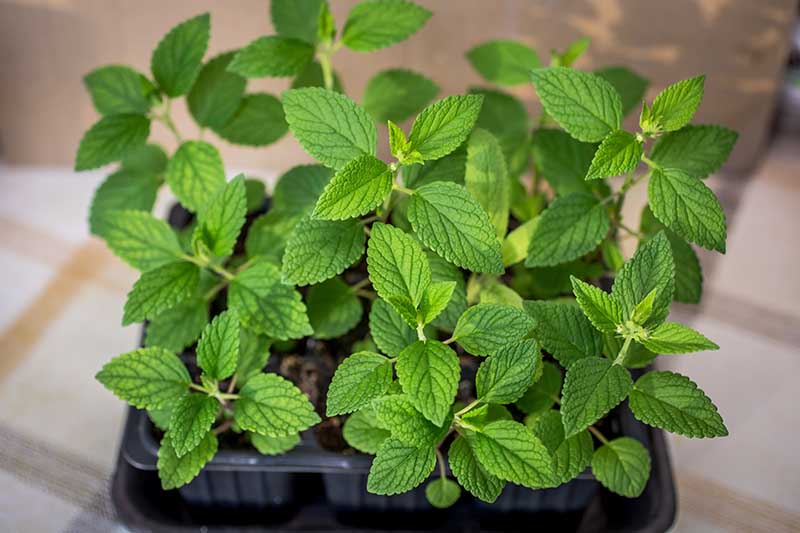
Botanical name: Nepeta cataria
Light: Full sun
Water: Average to medium moisture.
Soil: Loamy, sandy, and well-drained.
The herb catnip is commonly known as Nepeta cataria, and it is used in herbal teas. Because of its strong repellent properties, it is effectively used to keep mosquitoes at bay. These plants are used to make medicine, and they are completely safe to keep indoors.
Additionally, catnip is a decent non-toxic alternative to commonly used synthetic sprays. Your cats will also love them!
3. Lemon Grass
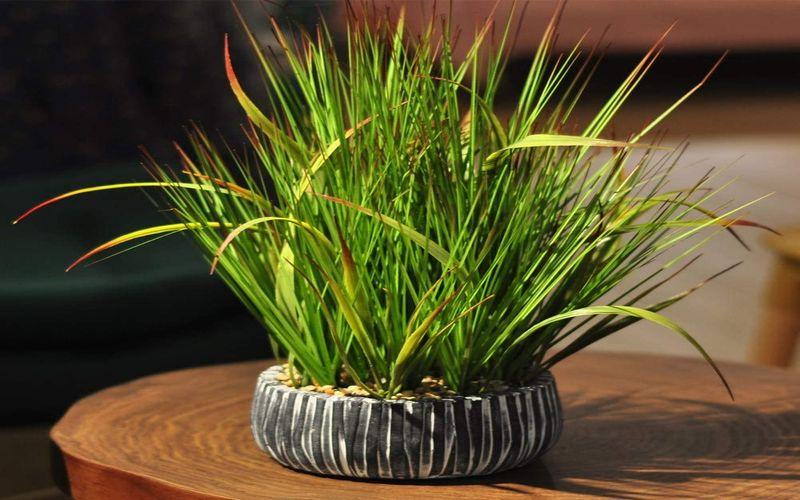
Botanical name: Cymbopogon
Light: Full sun
Water: Frequent watering
Soil: Sandy, loose soil
The silky head is a common name for Lemon Grass. If you ever catch a whiff of the plant, you will surely be mesmerized by its fragrance.
The citrus note of this plant makes it irritating to mosquitoes, which is why they don’t enter areas where lemongrass grows. Even your daily tea will taste better after being infused with Lemon Grass.
This plant is also used as anti-inflammatory medicine in India.
4. Mint

Botanical name: Mentha
Light: Full to partial shade
Water: Regular watering
Soil: Sandy soil
One of the most popular indoor plants is mint due to its several uses. The plant is used both as a medicine and as an indoor mosquito repellent plant. If you keep mint in your kitchen, it will leave a pleasing fragrance and be repellent to mosquitoes.
Apart from its use in various cooking styles, mint is widely used as a mouth freshener, tea flavor enhancer, or herb. If you have a nursery, you can grow various assortments of mint, whether they are wild or cultivated, as they all have the basic property to deter mosquitoes. A plant-like mint is easy to grow and you can even make your mosquito repellent from it.
5. Rosemary

Botanical name: Salvia Rosmarinus
Light: Full sun
Water: Average moisture
Soil: Well-drained, loamy, slightly acidic
In terms of mosquito-repellent plants, rosemary plants are among the best. Its woody scent repels cabbage moths, mosquitoes, and carrot flies. Rosemary is a fragrant plant that might be familiar to you and its woodsy scent might be what keeps them away from your home.
They can be effectively grown in small vases and kept in warm and dry temperatures. However, water them properly and show them sunlight frequently. Avoid overwatering the plant as it may clog the roots.
6. Lavender

Botanical name: Lavandula
Light: Full sun
Water: Regular watering
Soil: Moderately fertile
Did you ever notice that animals or insects have never destroyed your lavender plant?
The reason for that is their unique fragrance, which comes from the oils found on the leaves of the plant. Many researchers believe lavender oil hampers mosquitoes’ ability to smell!
Once established, this plant is extremely tenacious and drought-resistant, so all it needs is full sun and good drainage. Despite being able to survive many climates, it does best in warm weather.
Even though Lavender is typically planted outdoors, you can still bring it into the house where there is a lot of sunlight and sufficient airflow. Care for the plant and see how it manages to keep the mosquitoes from bothering you.
7. Basil

Botanical name: Ocimum basilicum
Light: Full Sun
Water: Frequent watering
Soil: Well-drained and moist soil
It is an exceptional herb that works well as an anti-mosquito plant. Basil leaves provide a strong odor that keeps mosquitoes away from your home. It is important to remember that Basil grows well when it is properly watered, kept in sunlight, and has excellent drainage.
You can cultivate the plant in pots or containers. Provide Basil plant sufficient sunlight with frequent watering. Apart from being a natural mosquito repellent plant, this herb is also amazing for medicinal purposes.
8. Marigolds
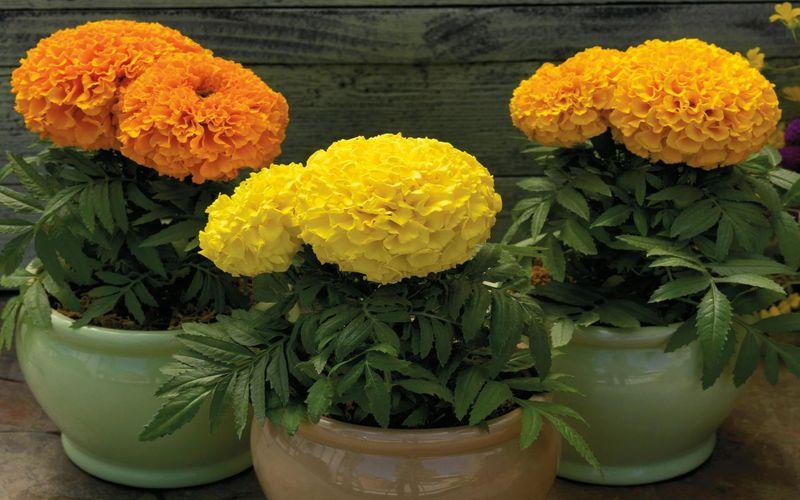
Botanical name: Tagetes
Light: Full sun
Water: Regular watering
Soil: Any good gardening soil
Marigold is considered one of the best indoor plants as it is easy to grow and gives off a scent that repels mosquitoes.
The best way to keep insects out of your home is to grow them in holders or pots. In addition to mosquitoes, they also keep away aphids, thrips, whiteflies, squash bugs, and tomato hornworms.
9. Allium Sativum (Garlic)
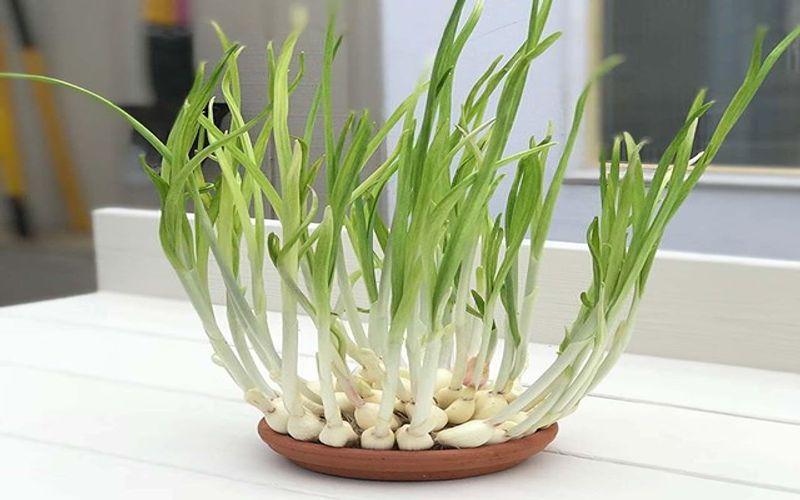
Botanical name: Allium sativum
Light: Direct sunlight
Water: Regular watering
Soil: Well-drained soil
Garlic is thought to be one of the best plants in India for repelling mosquitoes. You can use it by cutting it into small pieces and spreading the pieces around your living room. Alternatively, you can also make a spray out of it. You can even use the spray on your body (provided you don’t mind the smell) to repel mosquitoes, or you can grow a garlic plant in your garden.
10. Geranium Plant
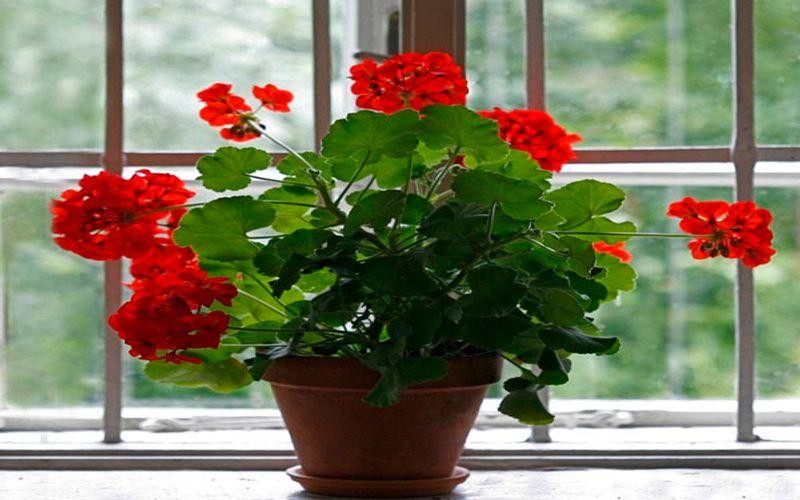
Botanical name: Geranium
Light: Full sun
Water: Requires less water.
Soil: Fertile, neutral to alkaline, well-drained soil.
You can enjoy beautiful mornings and evenings without worrying about mosquito bites when you have lemon-scented Geraniums in your yard. They repel mosquitoes and insects naturally.
Additionally, essential oils from this mosquito repellent plant are effective against anxiety and depression. It is also known to have antibacterial as well as anti-inflammatory properties.
11. Herb Of Grace
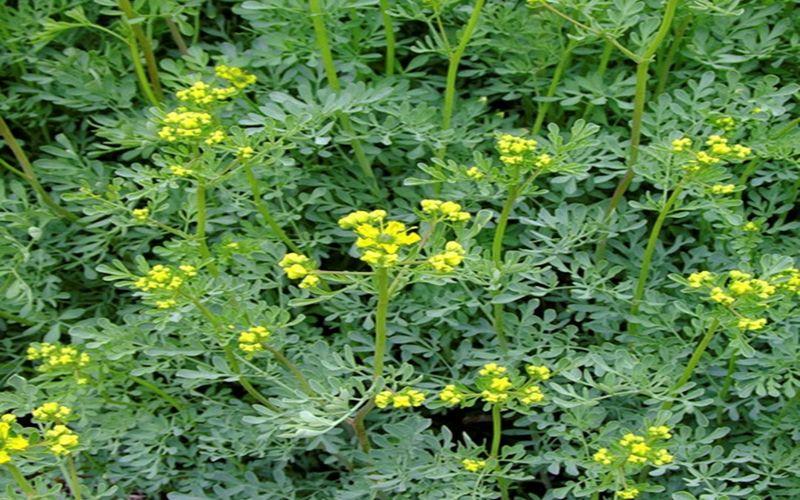
Botanical name: Ruta graveolens
Light: Full sun
Water: Medium moisture
Soil: Moderately fertile and well-drained soils.
You can dry the leaves of the rue plant (Herb of Grace), put them in small bags, and place them in areas that are normally infested by insects. With a pungent scent, it acts as an insect, mosquito, and moth repellent plant.
In the Mediterranean, the plant is used to treat pain, dermatitis, and other inflammatory diseases. It is a wonderful plant to grow in your garden.
12. Marjoram Or Marwa
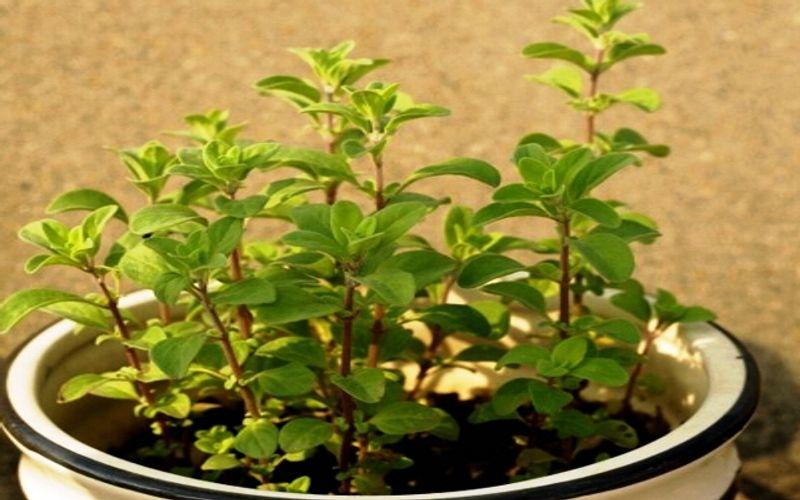
Botanical name: Origanum majorana
Light: Indirect bright sunlight
Water: Water when the top soil is dry.
Soil: Well-drained and fertile, rich in organic content.
This plant can easily act as a mosquito repellent due to the several active ingredients that it possesses, including carvacrol, thymol, and terpinene.
The Origanum Majorana herb is also useful in the kitchen because it aids in digestion and menstrual issues.
13. Bee Balm
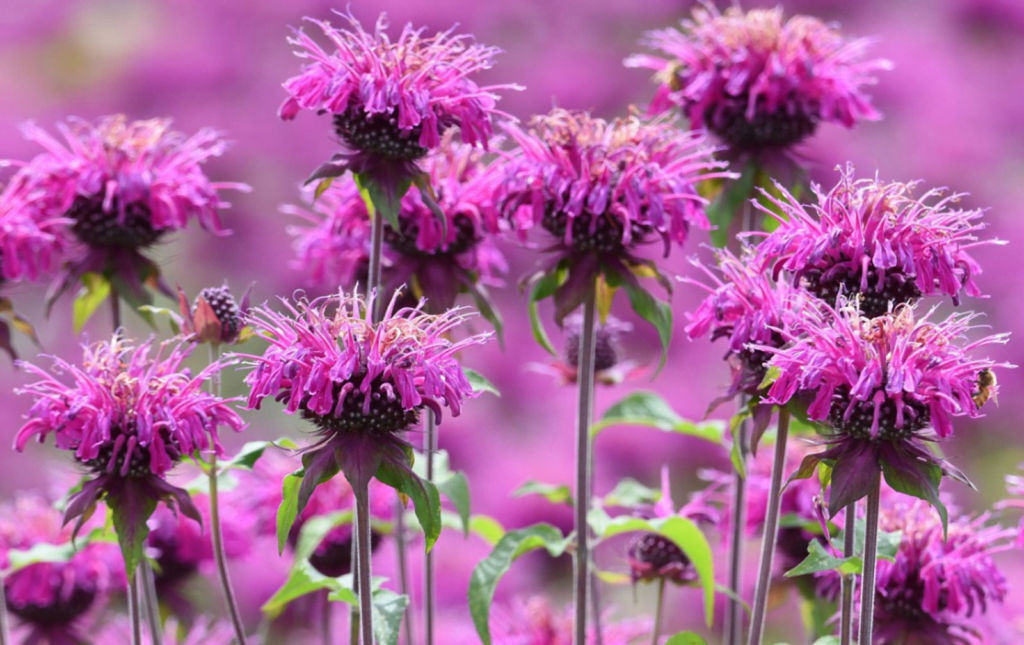
Botanical name: Monarda
Light: Full sun to partial shade
Water: Water regularly
Soil: Evenly moist soil rich in organic content.
Do you want to attract good bugs like bees and butterflies, while also keeping the bad ones away?
If so, bee balm, also known as Monarda or horsemint, is the right plant for you. Simply crush the leaves of the plant to release the fragrant oils. In addition, you get to enjoy colorful flowers, in shades of red, pink, lavender, white, or purple, all summer long.
14. Floss Flower (Ageratum)
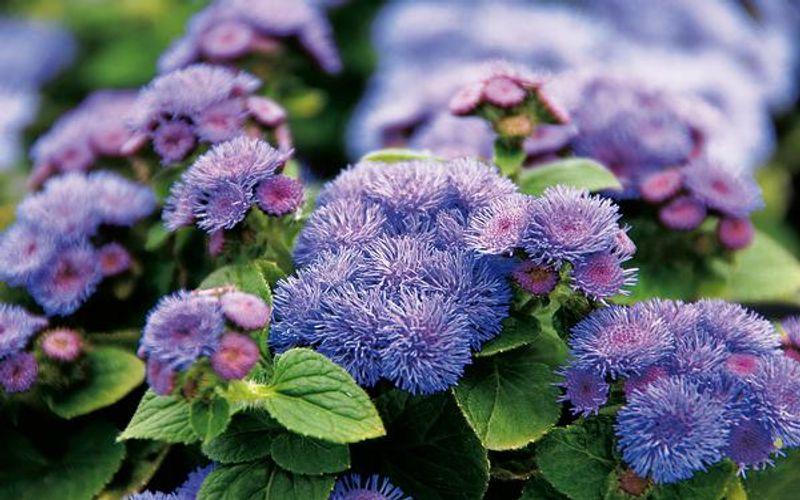
Botanical name: Ageratum houstonianum
Light: Full sun to partial shade
Water: Water to keep the plant moist.
Soil: Moist but well-drained.
This attractive-looking plant flowers annually and makes a perfect container plant. This plant contains a chemical that helps to repel mosquitoes. However, it can prove to be toxic if ingested by pets or humans.
15. Sage

Botanical name: Salvia officinalis
Light: Full sun
Water: Regular watering
Soil: Chalky, loamy, and sandy soil is the best for this plant.
If you enjoy gathering around a fire pit in your backyard, then plant sage nearby. Toss some of the plants into the flames and its earthy smell will ward off mosquitoes. This plant can also be dried and used to make a homemade mosquito spray.
16. Citronella Grass
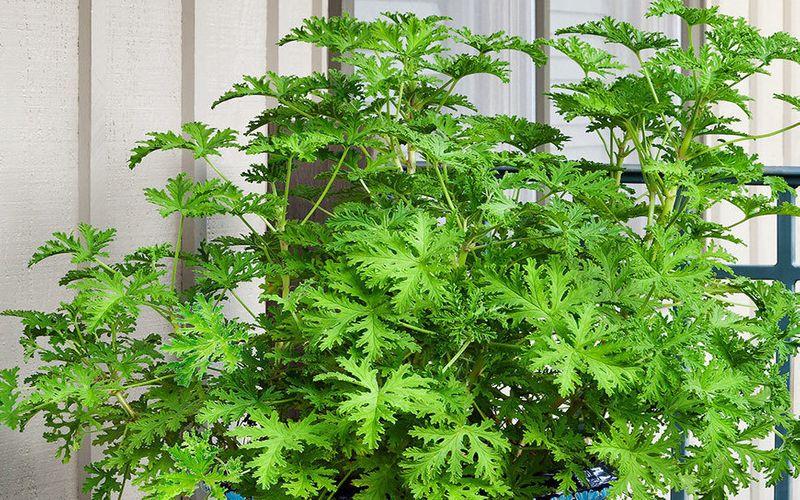
Botanical name: Cymbopogon nardus
Light: Bright filtered sunlight.
Water: Regular watering
Soil: Moist, loamy, and well-draining soil.
Citronella grass is an extremely important ingredient in DEETs (the most common ingredient used to make insect repellent) and Mosquito-Repelling Agents. Therefore, it makes for the perfect anti-mosquito plant indoors. As long as this is in place, it will repel bugs and mosquitoes for a very long time.
Make sure that the pots are in a cool place. The grass is very delicate and thrives in colder climatic conditions. The scent of this plant keeps mosquitoes away, making it one of the best indoor insect repellent plants.
Mosquito Repellent Indoor Plants Placement
It is obvious that you need to keep your mosquito repellent plant in the best place. The perfect place would offer the right amount of light and temperature that your plant requires. But apart from these, you need to keep the plants in areas where mosquitoes are likely to make an entrance into your home.
For instance, placing your lovely lavender plant in an empty spare bedroom won’t do much against these noisy creatures coming into the kitchen. Hence, try to keep your plant near a busy entrance. This will stop them from buzzing in. Bedrooms and living rooms are the next best place to keep the mosquitoes at bay.
Remember, these indoor plants will only repel mosquitoes, they are not going to kill them.
How to Stop attracting Mosquitoes
You will have fewer mosquitoes to deal with if you stop attracting them in the first place. Unlike houseflies, they are not attracted to food or garbage that might be in your home. Hence, keeping things clean won’t have much impact on the case of mosquitoes.
Then, what attracts them?
Mosquitoes are usually drawn to dark colors, body heat, and a range of fragrances. These include perfumes, lotions, and even body odor.
Also, these aren’t the only things that bring them directly into your house. If you are outdoors, wearing dark clothes and smelling of cologne, you are more likely to attract them inside with you every time you come back into the house.
Mosquitoes are usually most active at dusk and into the night, though not all species are exactly the same. Pay attention to not attracting the mummies by allowing the doors to be opened too often, or attracting them by opening the windows during the evening hours.
Additional Tips
Apart from being a frustrating pest, mosquito affects our health. These pests can spread diseases like West Nile, Zika, and even malaria. So, it is definitely worth putting extra effort into keeping your home mosquito-free.
The biggest way to protect your home from these diseases is to have tight window screens on every window.
The next step is to get rid of any stagnant or standing water. Stagnant water is the place where mosquitoes lay their eggs. Once they get mature, it leads to huge population explosions around the house.
Open water, decorative ponds, and unused kiddy pools are all potential breeding grounds for mosquitoes. Drain pools or other containers when not in use, consider adding lids or screening to places you can’t drain.
As mosquitoes can’t lay eggs in moving water, you can place a little solar-powered “bubbler in the pond. This will keep water moving in the pond and will prevent insect development. Also, this is a more natural option than treating a pond with chemical pesticides.
In addition, mosquito development depends on where you live. They are very much seasonal and their numbers are highest during summer.
To hatch the over-wintered eggs, the mosquito needs the water of spring rains. Hence, this is a perfect time to make sure you have thriving plants in your home to keep mosquitoes out.
So, with a few of these aromatic indoor plants and some minor changes around the house, you can have mosquito-free summer without using chemical sprays.
Conclusion
Mosquitoes can be found everywhere. They are present in all corners of our house and to kill them, we have to use harmful chemicals. But Mother Nature is our faithful saviour, and for these mischievous insects, she blessed us with mosquito repellent plants.
Time to say goodbye to the annoying pests! As you can fend them off naturally by growing these Best Mosquito Repellent Plants for Home and Garden. Also, the above-mentioned mosquito repellent indoor plants will not only save you from noisy insects but will add aesthetic beauty to your home.
Related Articles
- 15 Best Plants for Front Door Entrance India | Auspicious plants for front door
- 10+ Money plant Benefits That Will Make you Keep It In Your House
- Are Spider Plants Toxic to Cats?- 4 Ways To Prevent Your Cats From Eating Spider Plants.
- Best Plants for the House – 8 Top Apartment Plants That You Can’t Miss
- How to Braid Your Snake Plant: Tips and Care Guide
- 20+ Rare and Unusual Peace Lily Varieties You’ll Love

